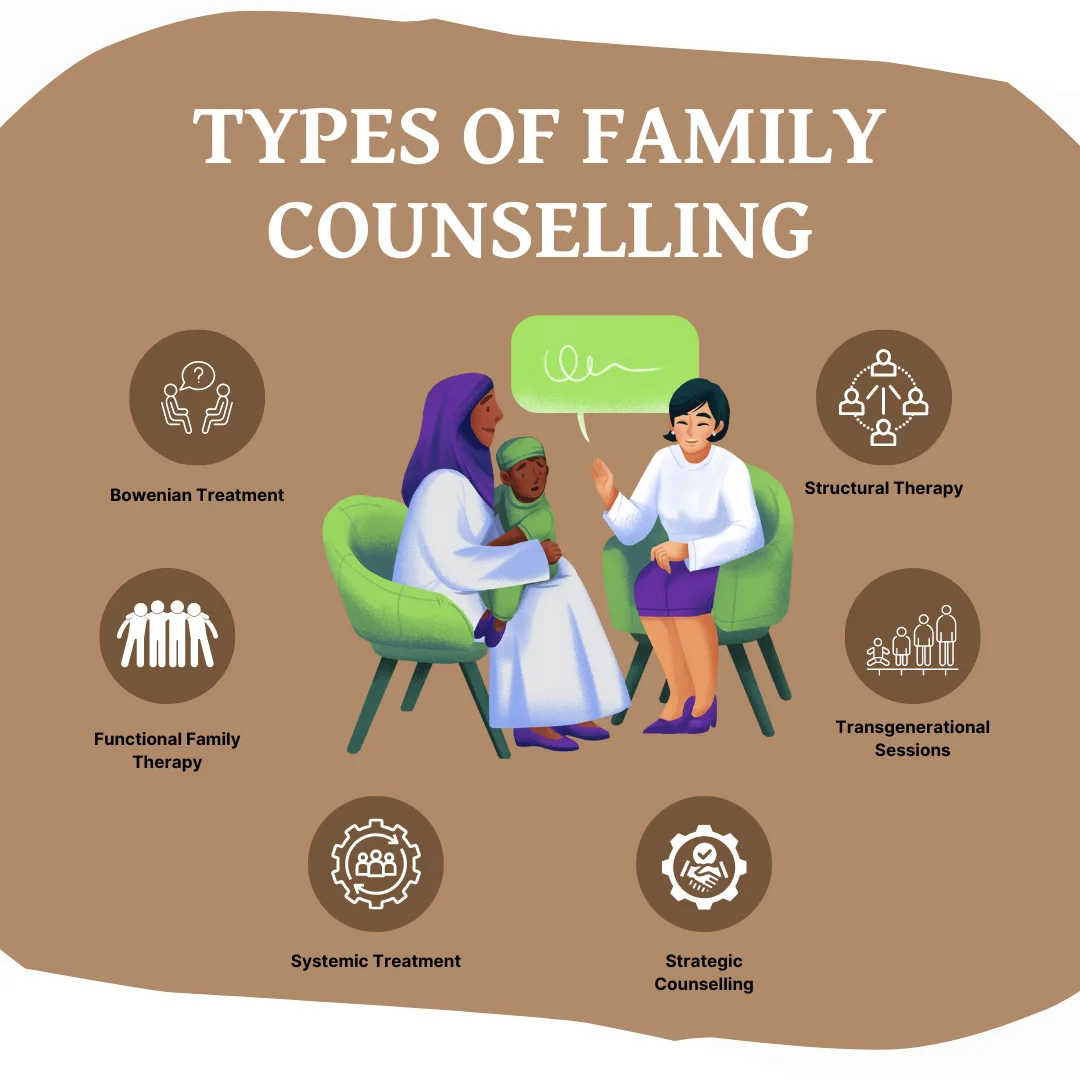A Comprehensive Overview to the Numerous Types of Therapy and Their Influence
Counseling incorporates a variety of restorative strategies, each designed to satisfy one-of-a-kind mental health requirements. From the organized strategies of Cognitive-Behavioral Therapy to the compassionate nature of Person-Centered Treatment, these methods offer distinctive paths to personal growth. Family members treatment and Dialectical Behavior modification offer extra frameworks for recovery, while group therapy promotes area assistance. Understanding these varied approaches can illuminate their profound effect on private wellness. What continues to be to be explored are the details of each strategy.

Recognizing Cognitive-Behavioral Therapy (CBT)
Although numerous healing techniques exist, Cognitive-Behavioral Therapy (CBT) stands out because of its structured, goal-oriented nature. This form of therapy is based upon the property that thoughts, feelings, and habits are interconnected, and by altering unfavorable thought patterns, individuals can modify their emotional actions and activities. CBT utilizes different strategies, such as cognitive restructuring, which aids customers determine and challenge distorted beliefs. Behavioral activation motivates interaction in enjoyable activities to fight depression.
Usually, CBT is a short-term treatment, often long lasting in between 12 to 20 sessions, making it obtainable for those seeking quick results. Its efficiency has been well-documented in treating anxiousness conditions, anxiety, and other psychological health and wellness problems. The specialist's role is to lead customers through workouts and research assignments, fostering self-awareness and promoting long-lasting coping techniques. This functional technique encourages people to take control of their psychological wellness, eventually causing enhanced life contentment.
Discovering Person-Centered Therapy
Person-Centered Treatment, created by Carl Rogers, uses a different technique to Cognitive-Behavioral Therapy by highlighting the client's subjective experience. This therapeutic version focuses on the person's perspective, fostering a setting of empathy, genuine positive respect, and authenticity. By enabling customers to discover their feelings and ideas without judgment, specialists help with individual growth and self-discovery.
The core tenet of Person-Centered Therapy is the idea that people have the fundamental capacity for self-healing and personal growth. In this setting, the specialist serves as a supportive guide as opposed to an instruction authority, motivating clients to take charge of their own journey. This strategy is particularly effective for those coming to grips with issues such as low self-confidence, stress and anxiety, or anxiety, as it equips them to face and recognize their feelings. Ultimately, Person-Centered Treatment cultivates a solid healing alliance, promoting trust fund and openness crucial for meaningful modification.
The Duty of Family Therapy in Healing
Family members therapy works as a vital component in the recovery procedure for people and their connections. This healing method concentrates on enhancing interaction, fixing conflicts, and promoting much deeper links among household participants. By addressing dysfunctional characteristics, family members treatment motivates each participant to reveal their thoughts and feelings in a risk-free atmosphere, advertising understanding and empathy.

The impact of family therapy prolongs beyond the sessions, as enhanced relationships can result in improved psychological wellness for all involved. In general, household treatment plays a crucial duty in recovery by promoting unity, resilience, and common support amongst household participants, ultimately leading them towards a much healthier, extra meeting life together.
Unboxing Dialectical Behavior Modification (DBT)
Building on the structure of restorative strategies that boost emotional health, Dialectical Behavior modification (DBT) offers an organized structure for individuals dealing with here extreme emotions and behavior difficulties. Created by Marsha Linehan, DBT incorporates cognitive-behavioral strategies with mindfulness practices, intending to aid clients handle frustrating sensations and boost social effectiveness.
The therapy is especially helpful for those detected with Borderline Individuality Disorder but is additionally applicable to a series of other mental health and wellness problems. virtual therapy. DBT is composed of specific treatment sessions and abilities training teams, concentrating on 4 essential ability: mindfulness, distress tolerance, feeling guideline, and interpersonal efficiency
The Advantages of Group Counselling Sessions
While specific treatment supplies important understandings, team counseling sessions supply unique benefits that can greatly enhance the restorative experience. One important benefit is the feeling of area that emerges among participants. People typically locate convenience in sharing their experiences with others dealing with similar challenges, promoting an encouraging environment that reduces sensations of isolation.
Team sessions urge varied point of views, permitting individuals to learn from each various other's coping strategies and understandings. This cumulative knowledge can lead to enhanced problem-solving abilities and a broader understanding of individual issues.
Additionally, group therapy typically promotes accountability, as participants encourage one another to pursue their goals and stick to their commitments. Finally, the cost-effectiveness of team therapy makes it an available option for many people seeking support. On the whole, the collective nature of group counseling sessions can considerably enhance the therapeutic trip.
Frequently Asked Concerns
What Qualifications Do Specialists Required to Exercise Therapy?
Therapists commonly need a pertinent level in psychology or counseling, along with supervised medical experience. In addition, they should acquire suitable licensure or qualification to practice legitimately, ensuring adherence to specialist criteria and moral guidelines.
Exactly how Do I Choose the Right Type of Treatment for Me?
Picking the ideal sort of therapy includes evaluating individual requirements, exploring different approaches, thinking about specialist specialties, and looking for referrals. Recognizing specific objectives and choices can substantially boost the efficiency and fulfillment of the restorative experience.

Are Online Therapy Sessions as Effective as In-Person Ones?
The efficiency of on-line counseling sessions compared to in-person ones commonly relies on individual preferences and scenarios. Research indicates that both methods can generate positive results, though some might discover higher comfort in face-to-face interactions.
Just How Long Does Counseling Commonly Last?

What Should I Expect Throughout My Initial Counseling Session?
Throughout the very first counseling session, customers can expect an introduction, conversation of their worries, establishment of goals, and an overview of the therapy procedure - relationship therapy. This first meeting aims to construct rapport and assurance convenience